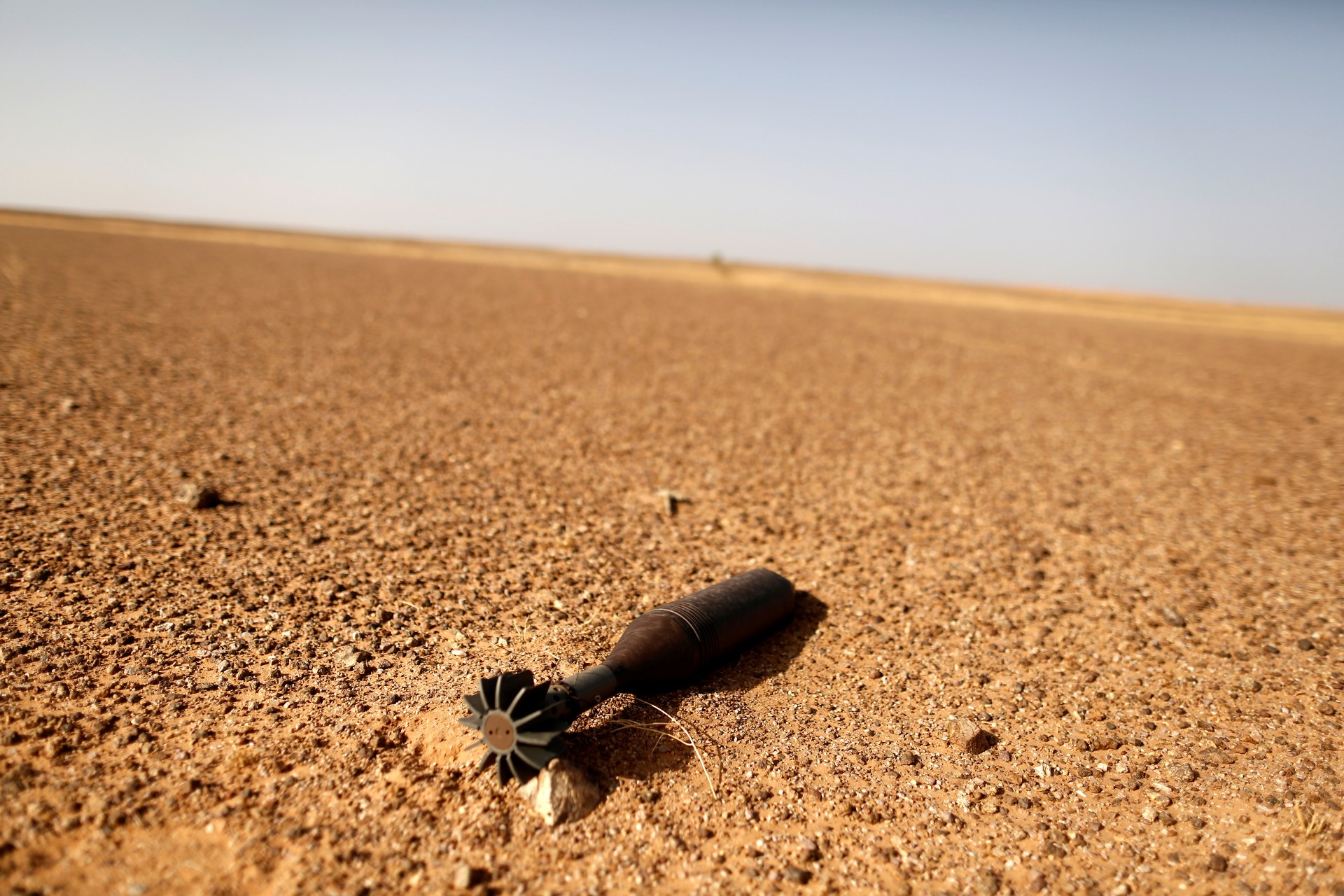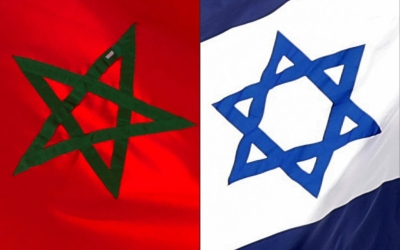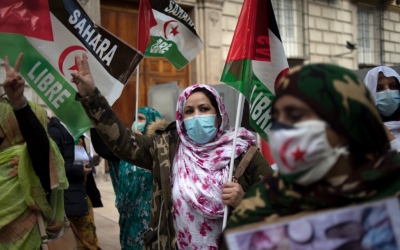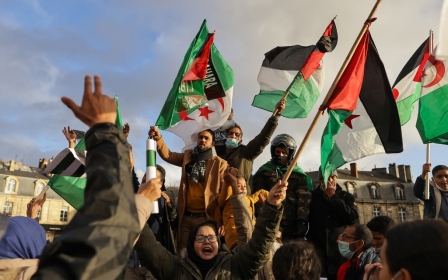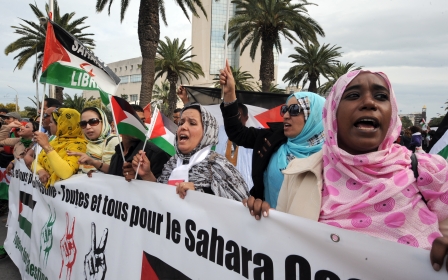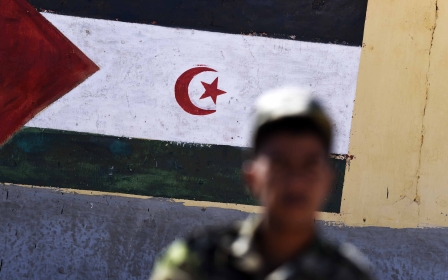Polisario hopes Biden will cancel Trump's Western Sahara deal. If not, there's always war
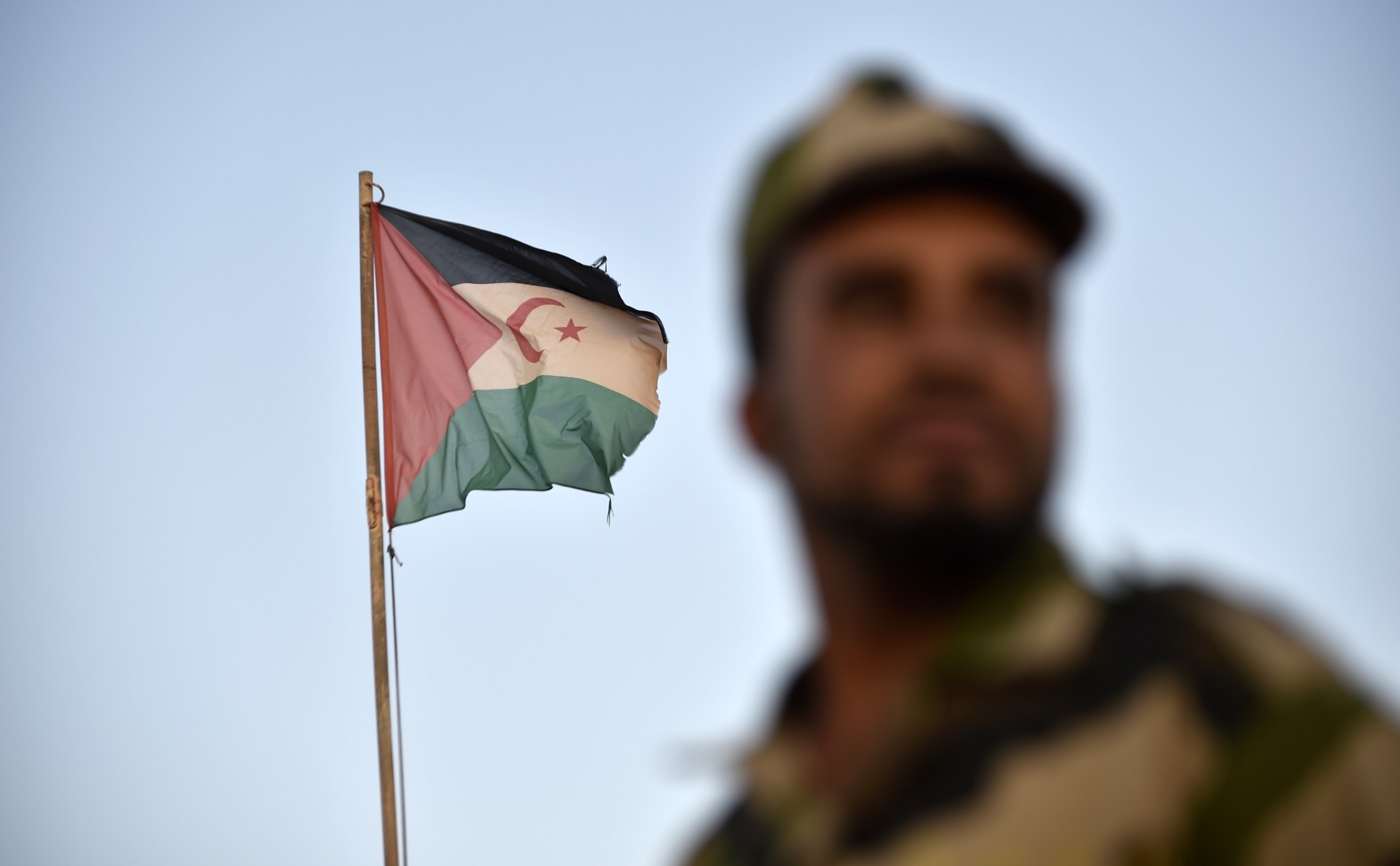
US President Donald Trump’s announcement last week that the United States was recognising Morocco’s claim over Western Sahara came as a gut punch to the Sahrawi independence movement.
But the Polisario Front, the organisation that has fought physically and diplomatically for Western Sahara’s independence for decades, is pinning its hopes on the incoming Biden administration, which it anticipates will reverse the designation.
If not, its officials warn, there is always the prospect of armed struggle.
As usual, Trump’s decision was announced in a series of bombastic tweets. The outgoing president linked the decree to Morocco normalising relations with Israel, and the kingdom’s recognition of the United States in 1777.
'Trump’s statement is at first a flagrant breach of international law in the case of Western Sahara'
- Mouloud Said, Polisario representative in Washington
His tweets upended years of American strategy in a moment, and provoked bipartisan condemnation, as well as the usual praise by loyal Republicans.
New MEE newsletter: Jerusalem Dispatch
Sign up to get the latest insights and analysis on Israel-Palestine, alongside Turkey Unpacked and other MEE newsletters
Jim Inhofe, chairman of the Senate Armed Services Committee and a Republican, said Trump was “poorly advised by his team” and “could have made the deal without trading the right of a voiceless people”.
Those sentiments were echoed by Eliot Engel, chairman of the House Foreign Affairs Committee.
“I am concerned this announcement upends a credible, internationally supported UN process to address the territorial dispute over Western Sahara, which successive administrations of both parties have supported,” Engel, a Democrat, said.
In Washington, Polisario’s representative Mouloud Said is primarily pursuing one line of argument: Trump’s tweet contradicts international law.
“Trump’s statement is at first a flagrant breach of international law in the case of Western Sahara. The statement does not mention any legal basis for such a decision, because it violates international law,” Said told Middle East Eye.
The 45th US president is not known to have much regard for the law. Currently, he is attempting to reverse his election loss through a series of baseless accusations of fraud in lawsuits that are being dismissed from courts faster than they can be drawn up.
And when it comes to international law, Trump had little resistance when unilaterally recognising Israeli sovereignty over the occupied Syrian Golan Heights in March 2019.
Political backlash
Unlike with other unilateral pro-Israel moves and strong-armed deals, Trump’s Western Sahara recognition does seem to have ruffled feathers domestically.
Some in Washington who have previously supported the US-brokered Israeli normalisation agreements with the UAE, Bahrain and Sudan, which preceded Morocco’s this year and are labelled the Abraham Accords, have lamented this latest deal over its connotations for Western Sahara.
The sparsely populated desert territory, thought to contain significant natural resources, has been claimed by Rabat since 1957, and Morocco’s army moved in after colonial power Spain left in 1975.
Sahrawis, however, have called for and fought for independence. Currently, two-thirds of the disputed territory is controlled by Morocco and the rest by the Sahrawi Republic.
Since a 1991 ceasefire agreement, Polisario has moved from an armed struggle to a diplomatic one, attempting to win support for a referendum on independence, a cause it gained allies for in Washington and elsewhere.
It is the transactional nature of Trump’s latest deal, which leverages an unrelated people and territory thousands of miles from Israel, that may cause enduring resentment in Washington and perhaps even be the agreement’s undoing.
James Baker, former US secretary of state and ex-UN envoy to Western Sahara, voiced these concerns following Thursday’s tweets.
"While I strongly support the Abraham Accords, the proper way to implement them was the way it was done with the UAE, Bahrain and Sudan, and not by cynically trading off the self-determination rights of the people of Western Sahara,” he said in a statement.
'It would appear that the United States of America, which was founded first and foremost on the principle of self-determination, has walked away from that principle regarding the people of Western Sahara'
- James Baker, former US secretary of state
“It would appear that the United States of America, which was founded first and foremost on the principle of self-determination, has walked away from that principle regarding the people of Western Sahara. This is very regrettable."
That sentiment is one Polisario hopes will prevail in Washington once Joe Biden enters the White House on 20 January. But, Said insists, nothing Trump has said will change the reality on the ground for Sahrawis.
“The Sahrawi Republic is an irreversible reality. It is a fully fledged member state of the African Union,” he said.
The only option, Said said, is to “continue spreading the Sahrawi just cause, confident that the Sahrawi Republic will impose sovereignty over all its land”.
“The times when foreign powers can change borders in Africa is over,” Said added.
That said, the US embassy in Rabat, emboldened by Trump’s decision, swiftly changed the officially recognised map of Morocco to include Western Sahara.
Armed struggle
The sun on the Trump administration is setting, and all Sahrawi eyes are seeking signals for how Biden’s team will handle the situation.
Adding to the tension is the disintegration of the 30-year ceasefire in Western Sahara last month, following a Moroccan military operation in Guerguerat that prompted Polisario to declare the truce over.
Amid these issues is a diplomatic vacuum: UN Secretary-General Antonio Guterres has not yet selected a special envoy to mediate between Morocco and Polisario, an absence felt all the more acutely since hostilities between the two broke out.
All these factors leave Biden’s team with a mess that will be hard to handle, if they wish to engage at all.
When it comes to Western Sahara, the US has historically played a decisive role in most recent UN Security Council resolutions as the “penholder”.
According to Said, “Trump’s statement automatically disqualifies a permanent member of the UN Security Council from playing a role in the search for a solution."
This is a situation that Said laments.
“It is obvious that the world sees the United States as the symbol of democracy and the rule of law and not the opposite by undermining the two pillars of the United States' foundation,” he said.
In fact, Trump’s statement has put Western Sahara in the spotlight at a critical stage when Polisario’s armed wing continues to stage attacks on the Moroccan wall, a 2,700km-long berm that divides the territory.
Hopes pinned on Biden
Sidi Wakal, secretary-general for the Sahrawi security ministry, told MEE to expect attacks to continue until national sovereignty is established over all of Western Sahara.
'The Sahrawi popular liberation army has got involved in a large-scale war against the invasive Moroccan Royal Army. This war will develop and expand to meet the demands on the ground'
- Sidi Wakal, Sahrawi security ministry secretary-general
“The Moroccan Royal Army has made a mistake again, as it did in 1975, and got involved in a war without expecting such a fast and powerful response from the Sahrawi People's Liberation Army, which forced the Moroccan regime to play its last and dirtiest card by trading normalisation with Israel for a tweet from a departing president,” he said.
“The Sahrawi People's Liberation Army has got involved in a large-scale war against the invasive Moroccan Royal Army. This war will develop and expand to meet the demands on the ground.”
Yet it is the incoming Biden presidency that Polisario appears to be pinning the majority of its hopes on.
“We just hope that the Biden administration will undo this historical violation of international law,” Said said.
“The United States does not deserve to be linked to such action. It is our expectation that they will be more sensitive to freedom, democracy and the basic human right to self-determination.”
This article is available in French on Middle East Eye French edition.
Middle East Eye delivers independent and unrivalled coverage and analysis of the Middle East, North Africa and beyond. To learn more about republishing this content and the associated fees, please fill out this form. More about MEE can be found here.


